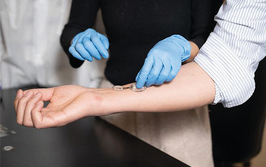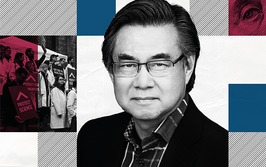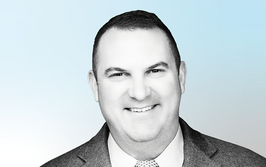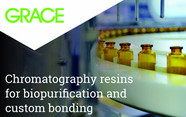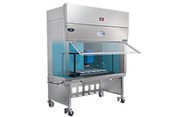
Joseph Loo: Let’s Fight Chaos with Collaboration
In turbulent times, ASMS President Joseph Loo calls for US researchers to unite, stand resilient, and focus on the continuing mission
| 4 min read | Interview
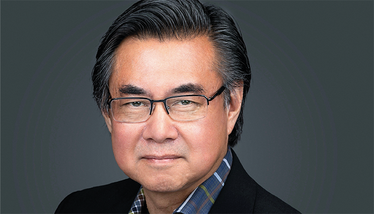
What is your overall view on what’s happening in the US with regard to federal budget cuts and their impact on science?
It feels like pure chaos. I know some scientists who have lost their jobs at federal science institutions such as the NIH, and others who are nervous that they’ll be the next to be let go. At UCLA and other academic institutions, the potential reduction of indirect (or overhead) costs from approved federal grants represents a huge loss of funds that essentially “keep the lights on” and support all of the personnel required for scientific research. Some major universities have had their federal funding frozen – a question everyone’s asking at the moment is: who’s next?
One of the biggest issues is the total uncertainty and unpredictability that surrounds the topic of budget cuts, with another bolus of “doom and gloom” news unleashed every day it seems. Frankly, it’s driving people up the wall. Around me at UCLA, graduate students are losing training grant support, and hiring freezes for new faculty and staff are in place. Some departments have reduced the number of graduate students they recruit. Other department chairs have taken it a step further and told faculties to reduce spending on everything – including instruments and lab supplies – in case the cuts come to fruition.
In a sense, the current situation almost feels worse than the COVID-19 pandemic. Back then, there was a sense of optimism that the science enterprise and health organizations – in the US and worldwide – would find a solution, eventually. Today, the uncertainty within government agencies and the ripple effects on scientific research and education have caused frustration and anxiety among students, faculties, and the institution leadership.
Right now, I’d hate to be a younger scientist at the beginning of my career. Prior to my current academic career, I worked in the pharmaceutical industry – if I was younger, I’d probably consider jumping back.
What do you perceive as the long-term consequences of these policy changes on analytical science in the US?
These changes could result in fewer people – students, postdocs, researchers – and less money for research. It’s also likely that it will become more difficult to remain competitive for future funding cycles. Coupled with the tariffs, scientific instruments and supplies could become more expensive – or even, in the short term, cost-prohibitive. For US analytical science overall, it could shift labs to their focus only on projects perceived to be most fundable – chasing grant money, so to speak. Science grows best by asking and addressing basic fundamental questions – you never know if it will lead to something big.
Is there any room for optimism, or perhaps a silver lining somewhere?
I’m just spitballing here, but perhaps this situation will encourage more collaborations, as labs might need to join forces to share resources. Of course, I doubt this was the original intention of the funding cuts, but the consequences might be that more labs share the pain, but also share the gain.
We all need to be resilient and focus on things that we can control, like the experiments in the lab. Consider our short term goals with the long range impact they could have. Marvel at the new discoveries we make. Think about the significance of the new knowledge gained, and then develop a plan of attack to build on the next big result. To quote Ryan Reynolds’ Deadpool: “Maximum Effort!”
Our Continuing Mission
I’m choosing to be optimistic; solely focusing on all the negativity isn’t productive. As the current President of the American Society for Mass Spectrometry (ASMS), I want to encourage scientists to remain engaged with the science enterprise. ASMS recognizes the importance of fostering an environment where all members feel valued, heard and supported. We are committed to ensuring that every member – regardless of background or experience – has the opportunity to engage fully in our shared scientific pursuits.
We believe that mass spectrometry is an important area of not only analytical science, but the global field of science. Science doesn’t happen in a vacuum (except mass spectrometry science, of course). Interactions with colleagues are critical to get feedback and to exchange ideas. And so, I invite everyone who wants to learn the latest and greatest developments of mass spectrometry to participate in the annual ASMS conference in Baltimore, from June 1st to June 5th, 2025.
During the recent spring break, I binge-watched all three seasons of Star Trek: Picard, in which I learned that at the end of the 24th century, mass spectrometry persists. With that in mind, I implore all spectrometrists to support the Science Enterprise and contribute to a technology that will continue far into the future. Engage!
Joseph A. Loo, Ph.D, is Professor of Chemistry and Biochemistry, and Biological Chemistry, University of California, Los Angeles; President, American Society for Mass Spectrometry (2024–2026)
